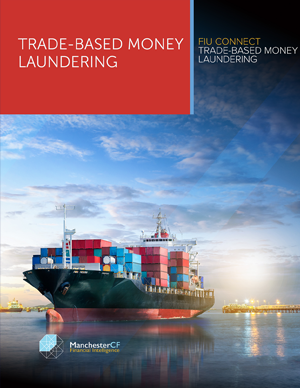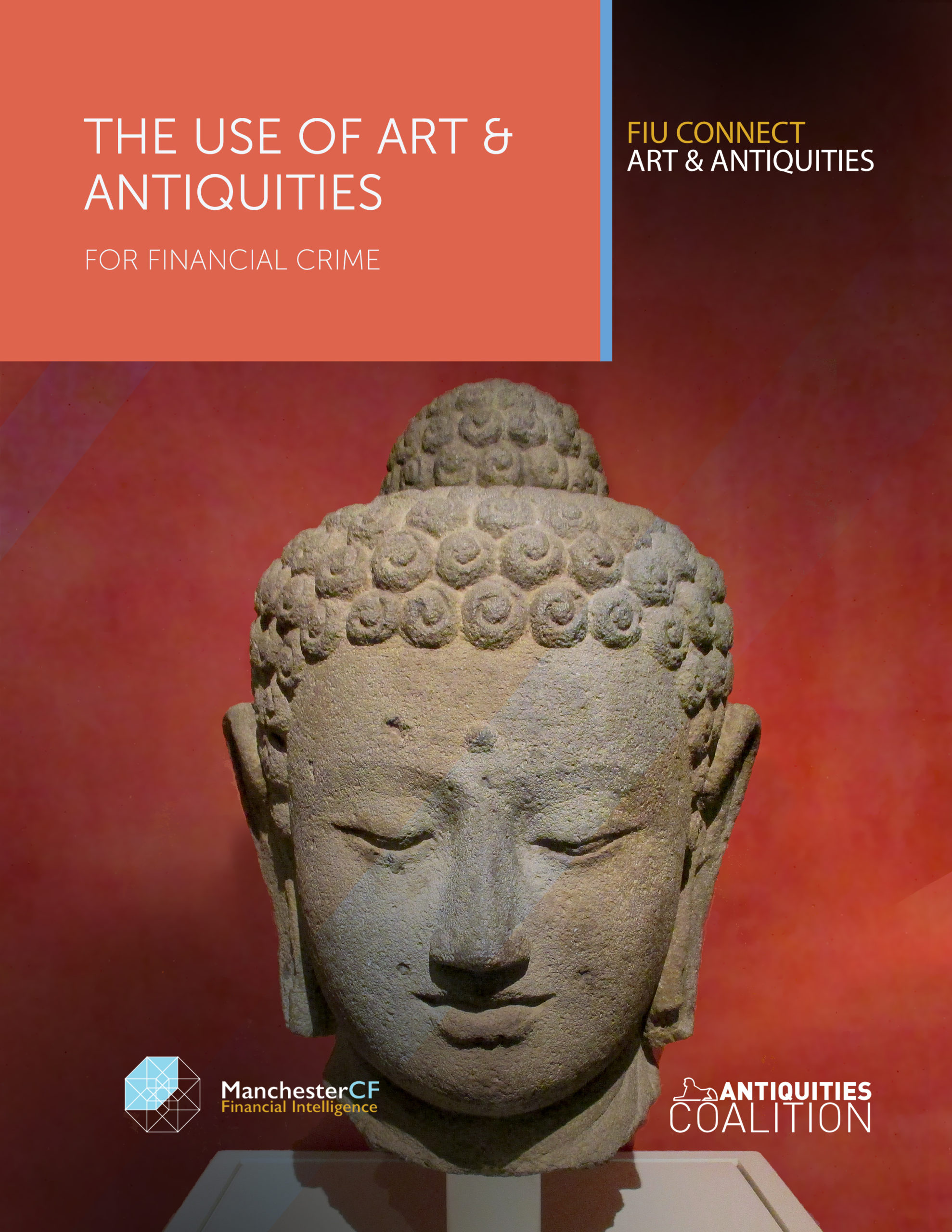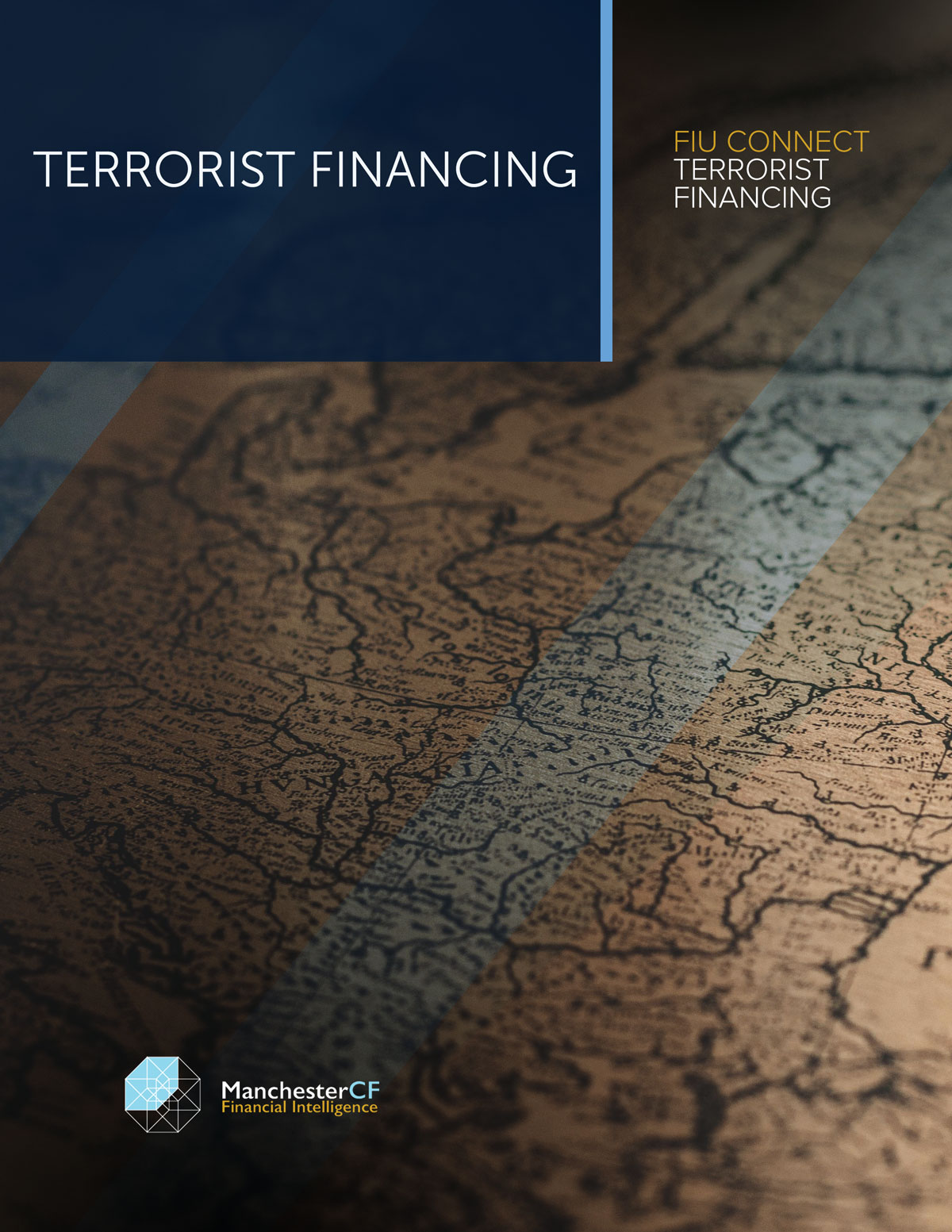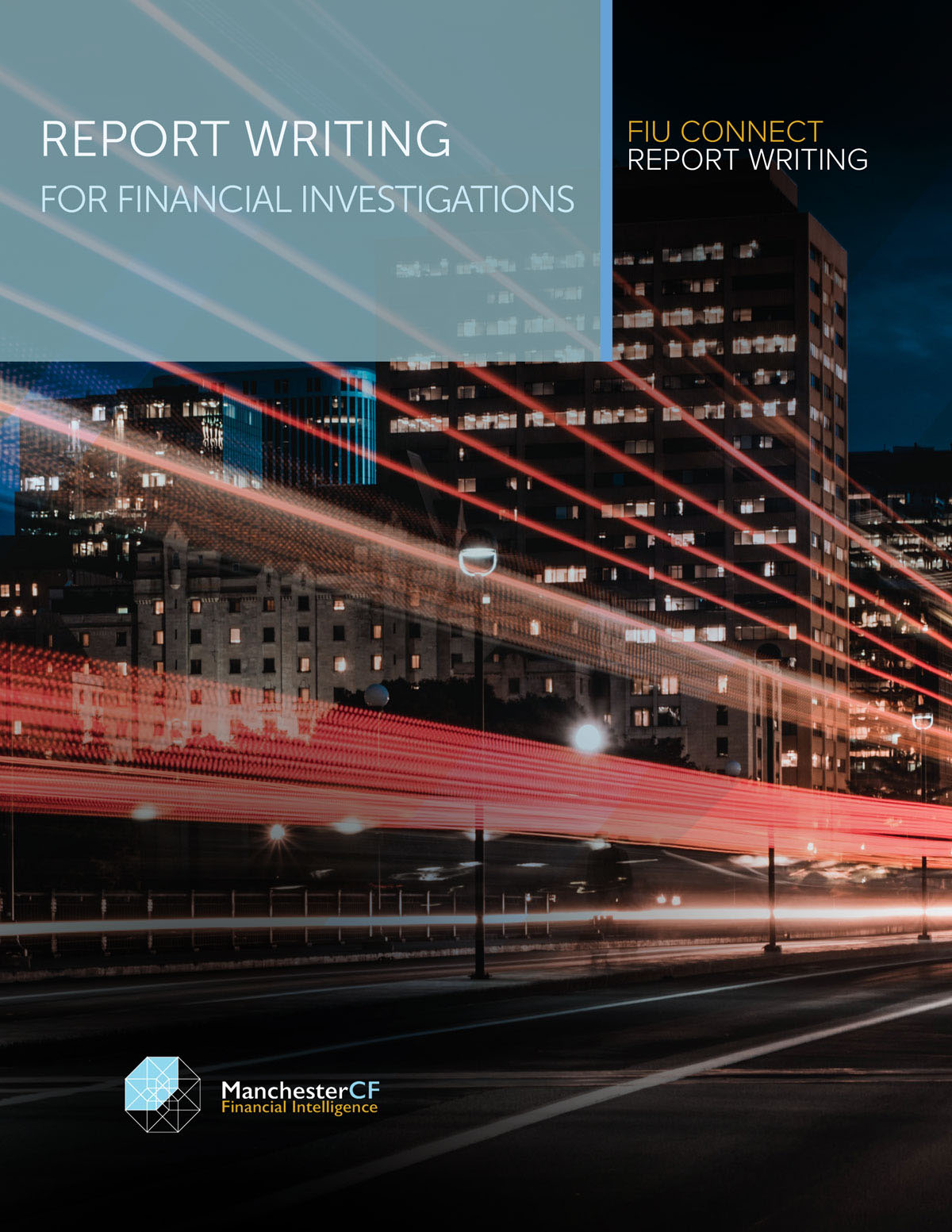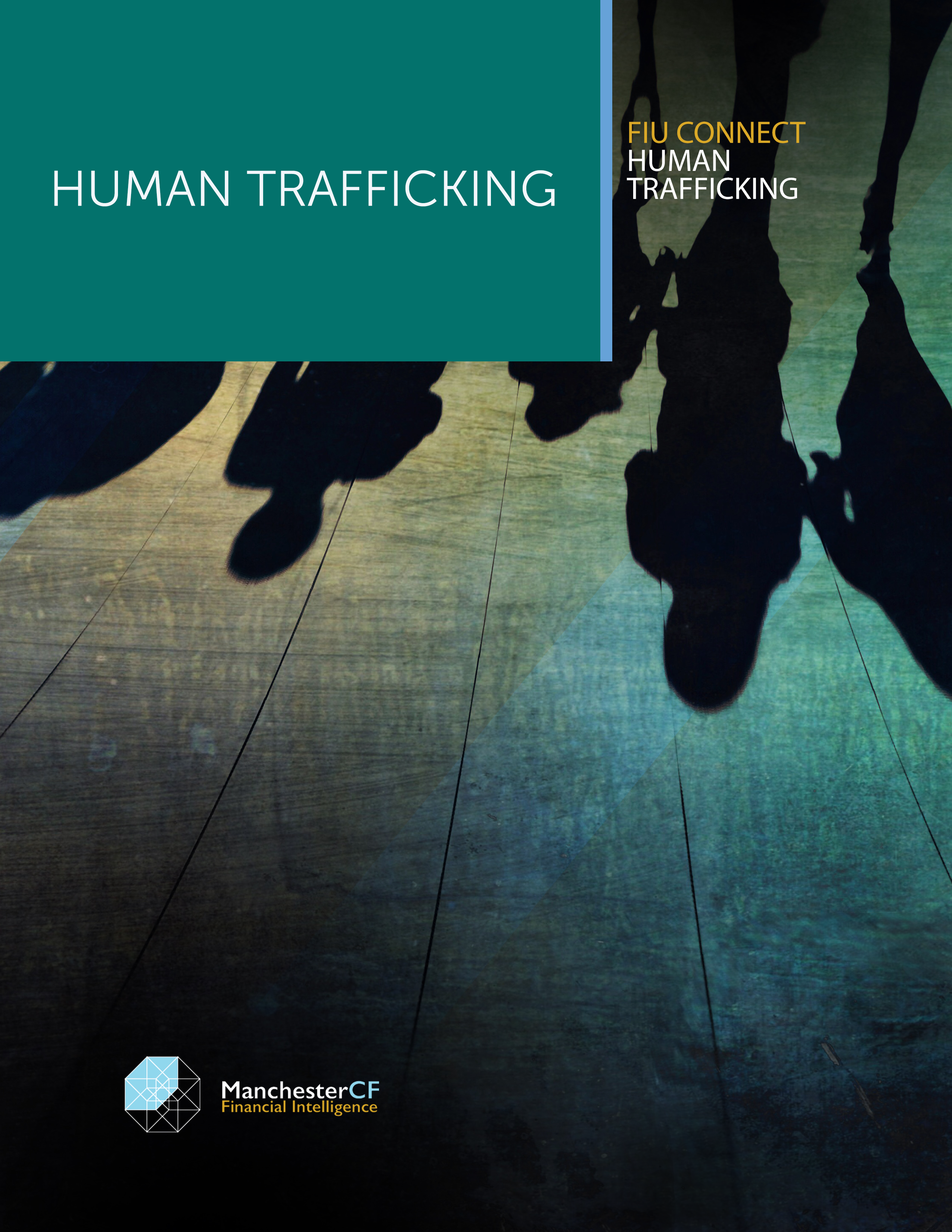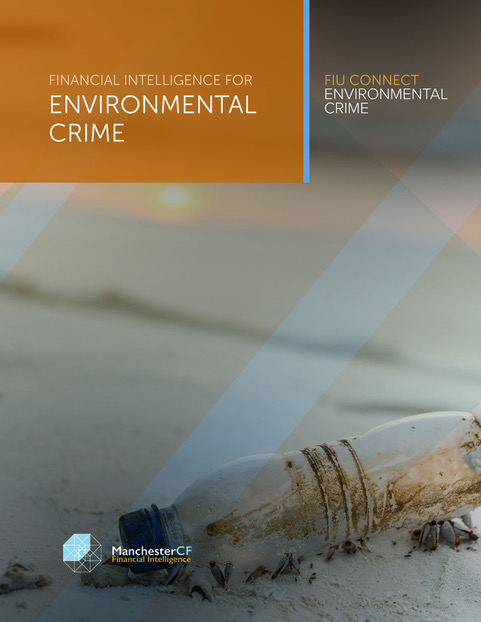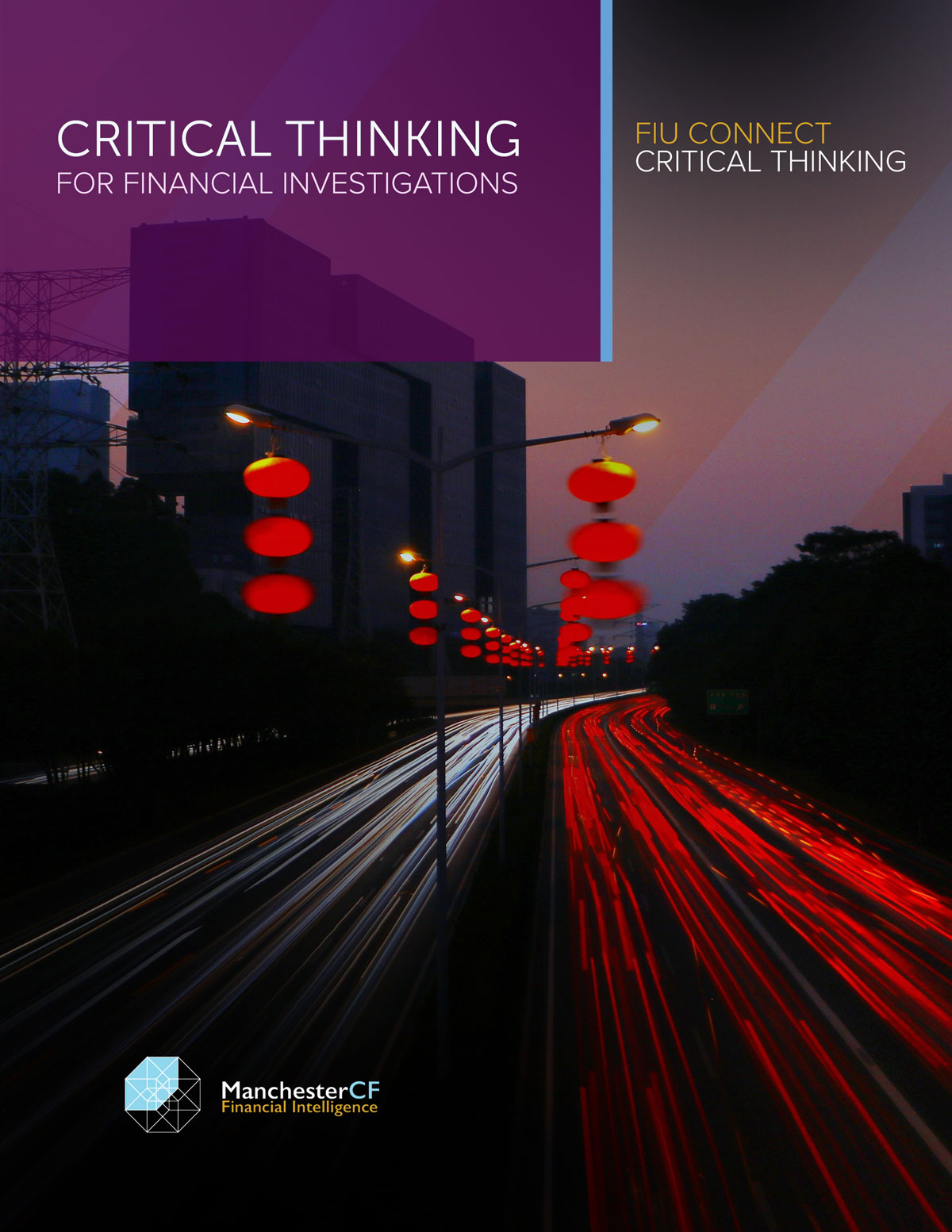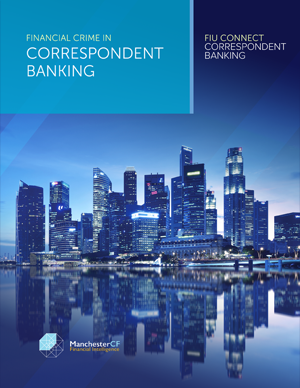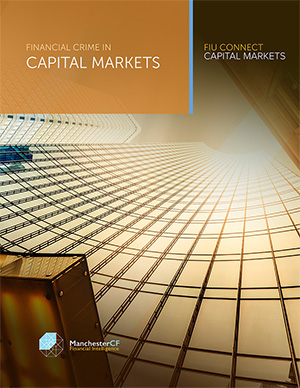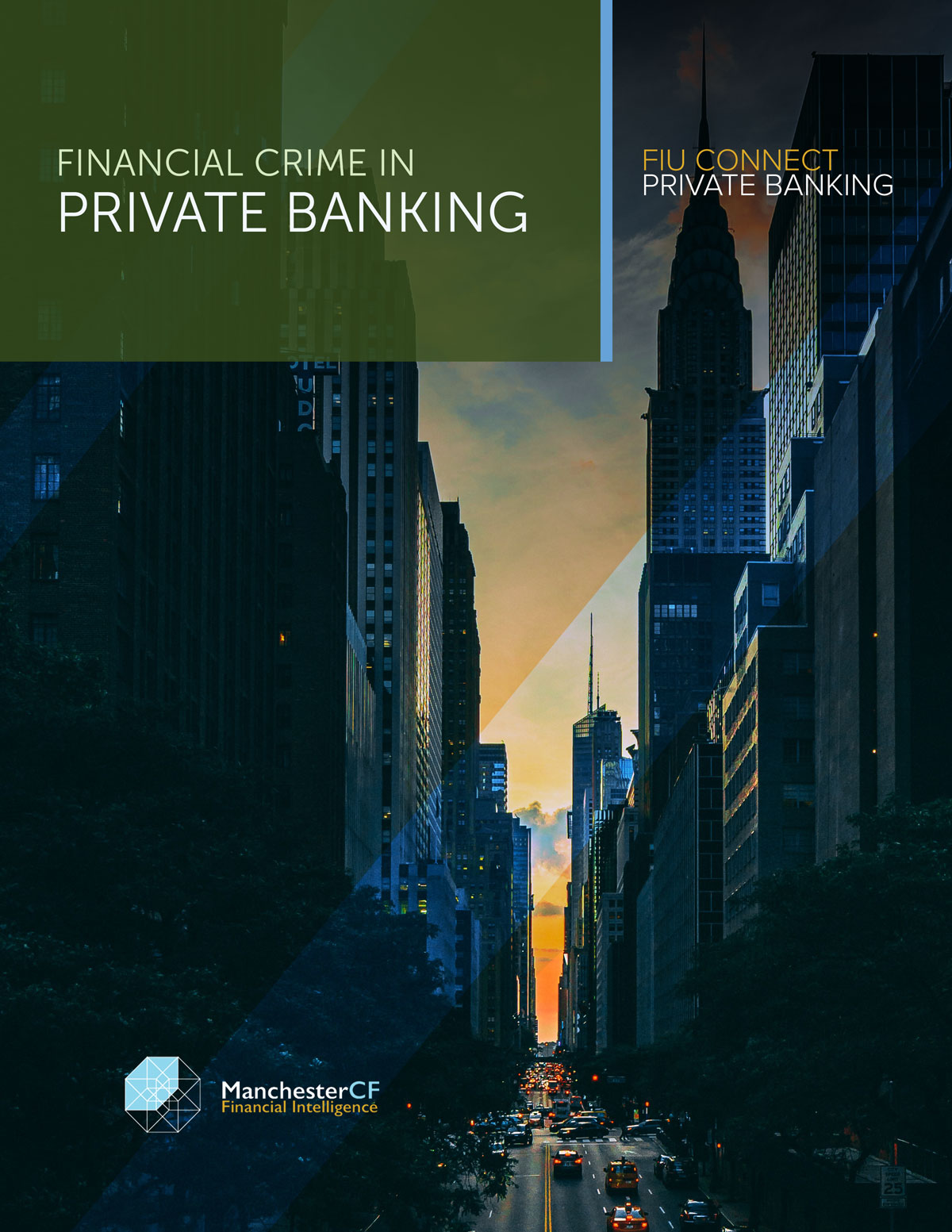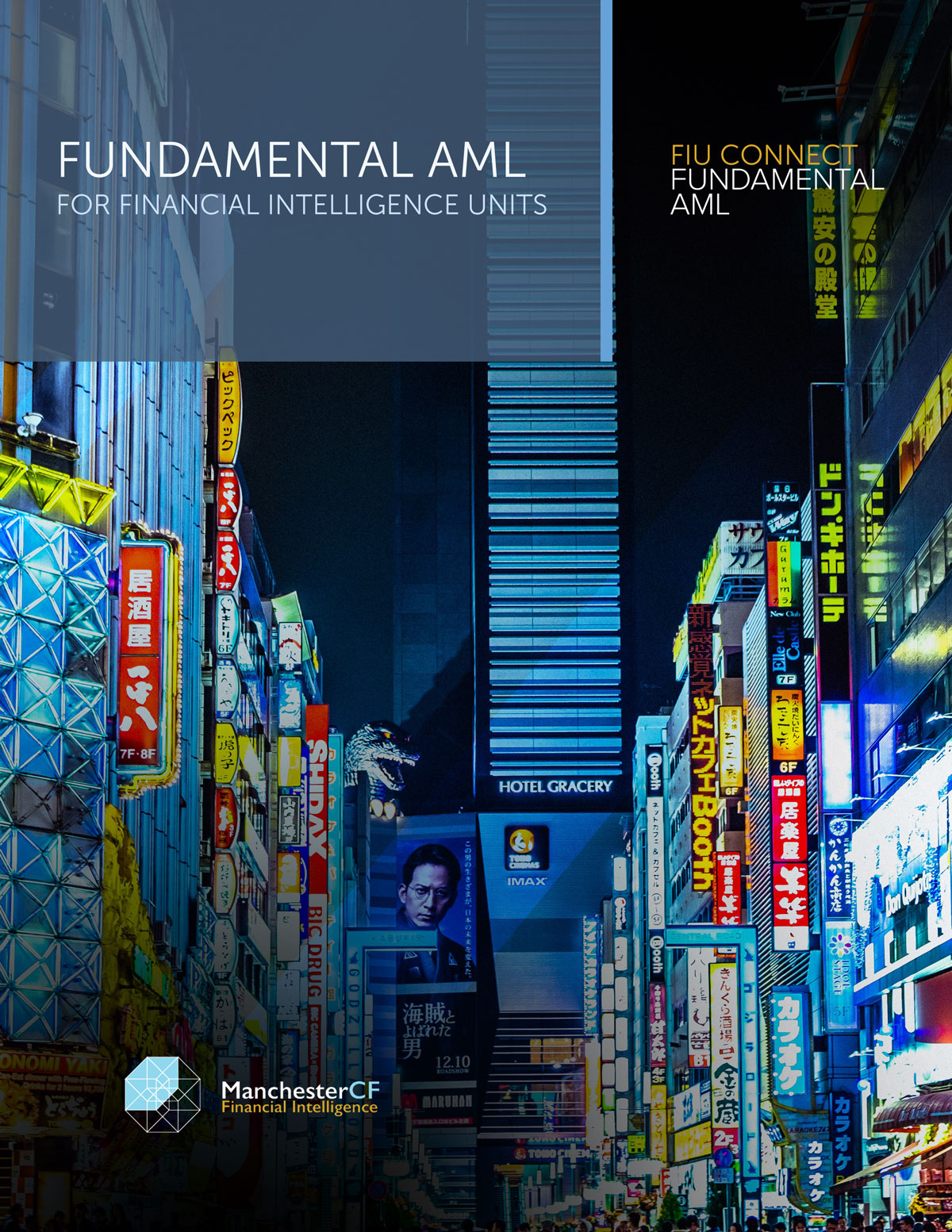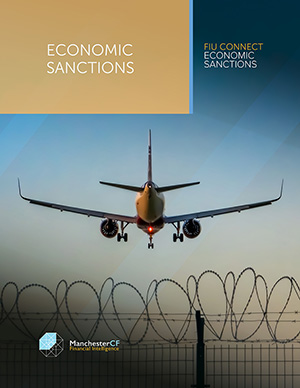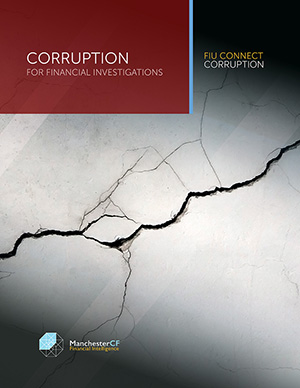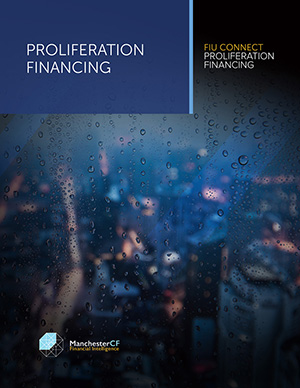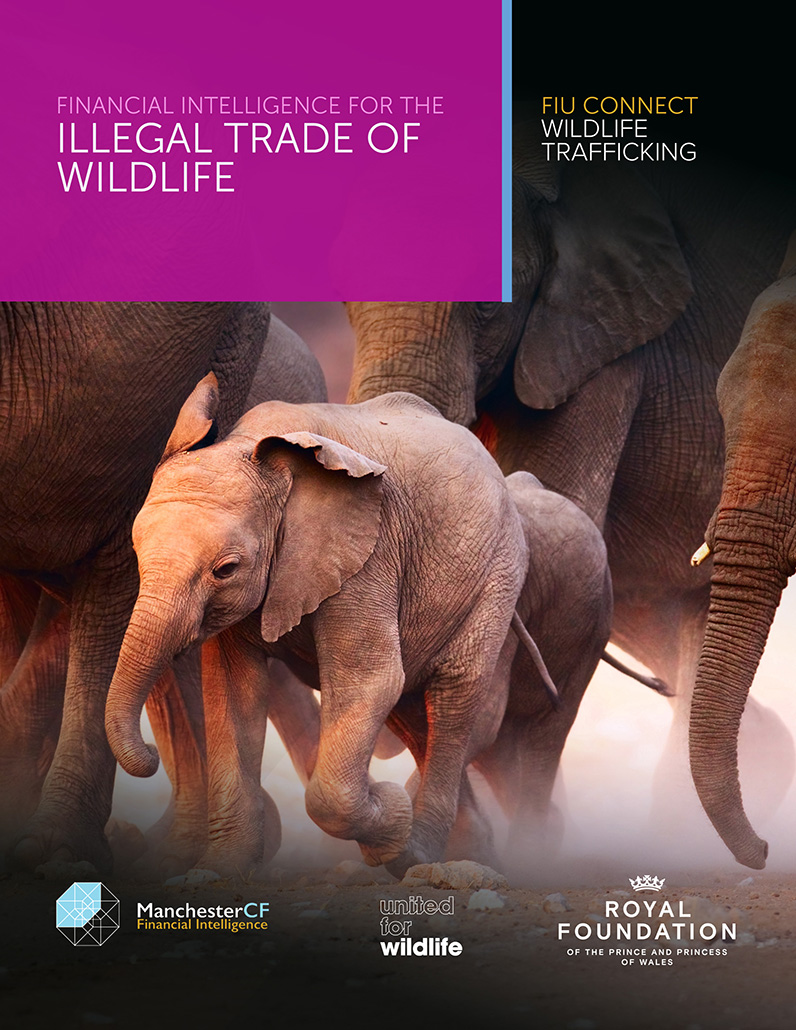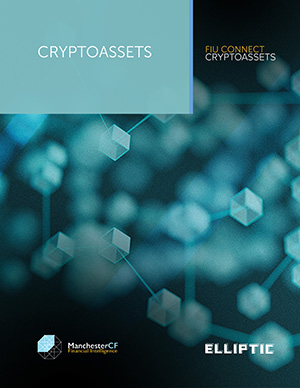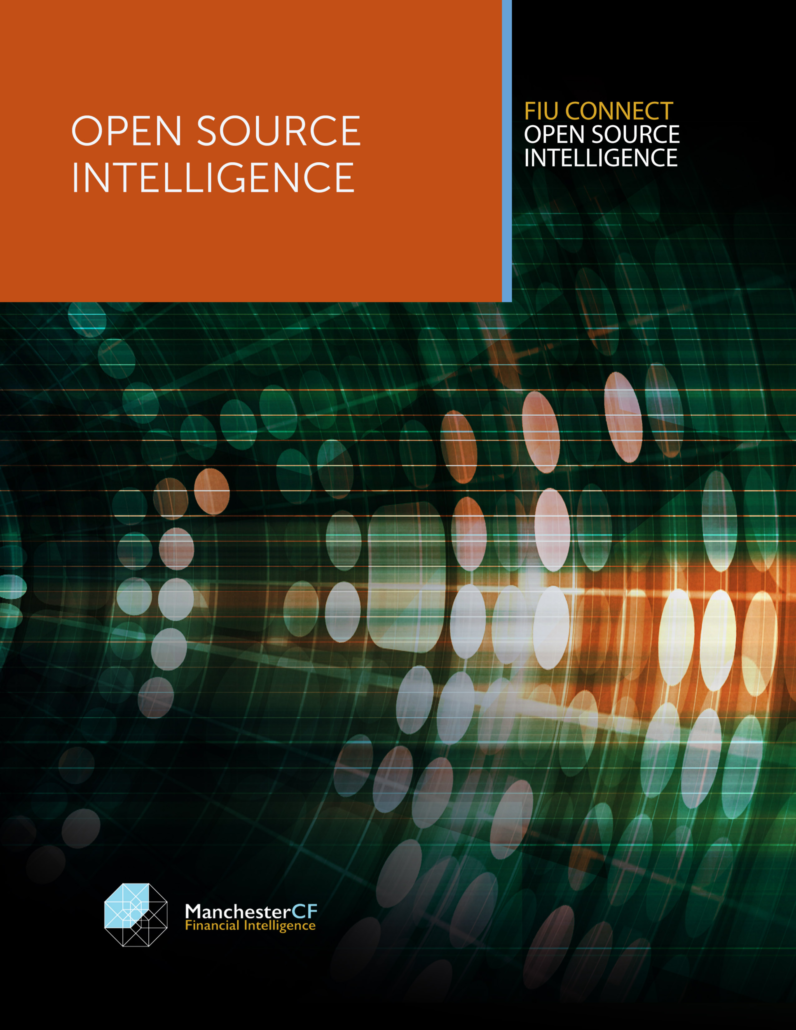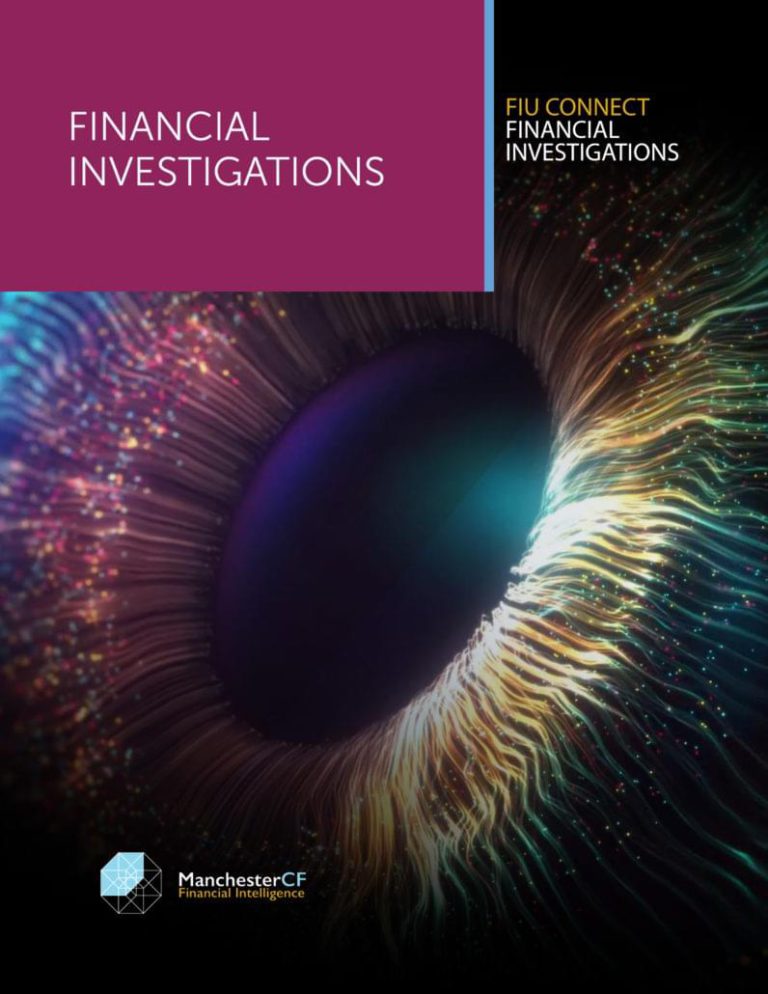FIS SPOTLIGHT
Achieving the Financial Intelligence Specialist certification is a career milestone. With thousands of FIS graduates from around the world, our FIS Spotlight showcases industry professionals who have demonstrated exceptional commitment while achieving their FIS designation.

FIS SPOTLIGHT
Achieving the Financial Intelligence Specialist certification is a career milestone. With thousands of FIS graduates from around the world, our FIS Spotlight showcases industry professionals who have demonstrated exceptional commitment while achieving their FIS designation. Each month ManchesterCF will profile a different FIS certified professional and share their insights on news and trends in the AML compliance space.
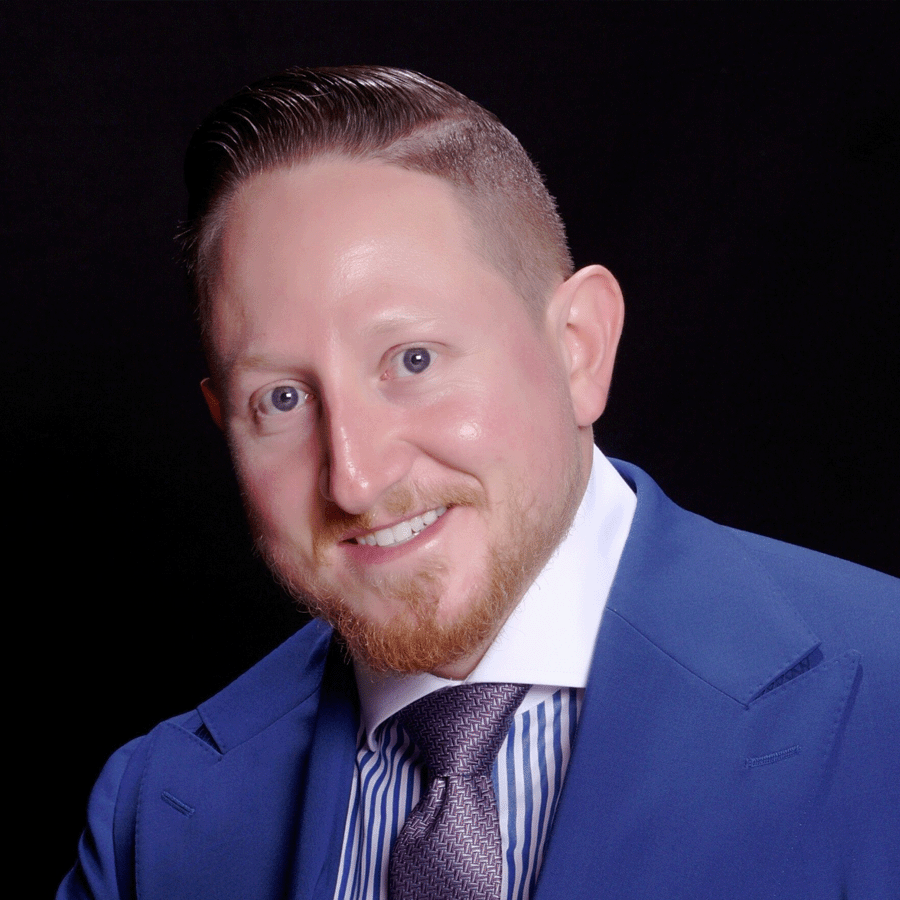
January 2024 Spotlight:
Alexander Fulton Giemborek, FIS
1. How did you get started in the anti-money laundering business?
I have always wanted to enter the banking industry and did not have a traditional background in finance. During a time where I was looking to change my career, I was researching roles within the bank and AML compliance caught my attention. I had previous relevant experience working at a collection agency that allowed me to pursue my studies in AMLTF. Once I had the theoretical knowledge, I was able to join a financial institution where I was able to apply my knowledge and other experiences to excel in the industry. This opportunity opened the door to learning about AML and I was forever captivated by the industry. I have continued my journey in AML and most recently obtained my FIS designation, which has helped to increase my knowledge of financial crimes and AMLTF.
2. What are the challenges you face in your AML career?
This biggest challenge I faced in my AML career was when I was entering the AML space since I did not have a traditional background in finance. I was able to overcome this challenge by learning as much as possible about the industry, staying ahead of AML trends and the ever-evolving regulatory landscape. Learning about the business has also proven to be an asset in my career and complements the knowledge learned on financial crimes and AMLTF. Other challenges involve staying ahead of financial crime trends and in turn, staying ahead of the criminals. My journey in the AML space has showed me that knowledge is power and staying ahead of AML trends and regulatory changes is the best way to combat criminals and overcome career challenges.
3. What are the skills that serve you best in your AML career?
I believe my investigative mindset and quest for knowledge have helped drive my career in AML. Additionally, with a unique background in hospitality management and other unrelated industries, I have brought forward a unique perspective to different problems that have arisen throughout my career. I also believe the interpersonal skills I have acquired have helped me to build lasting relationships with other like-minded AML industry professionals and have allowed me to gain and share insights in the industry.
4. What books/podcasts do you recommend?
For AML podcasts I would recommend listening to “Financial Crime Matters” by Kieran Beer and have recently subscribed to the Illicit Edge, a news source for financial crime professionals, which is a great way to stay current with AML-related news. On top of the practical AML knowledge, I found it important to learn more about leadership and inspiring others, which is why I read motivational books such as Can’t Hurt Me and Never Finished by David Goggins. Motivational books have helped me to persevere through tough times and overcome difficult challenges in my career or other aspects of my life. Reading the experience of other inspirational leaders has helped me to become a stronger leader and has motivated me to inspire others to achieve greatness.

July 2023 Spotlight:
Adeline Pouchelon, FIS
The AMLTF world is very challenging. One of the main challenges I face is the rapidness at which changes occur: the evolution of technology, the numerous suspicious patterns, the creativity of bad actors… It never stops to evolve and therefore, I never stop to learn. Being aware of new regulations, understanding the emerging trends, and having the right data and tools are essential to correctly conduct the risk assessment of the client. Sharing knowledge and information is a key element of strong financial crime fighters.
1. How did you get started in the anti-money laundering business?
When I was a student in Law, I was particularly interested in classes such as International Law, Human Rights, etc. Studying those topics allowed me to understand the quote “follow the money” and the links between those big topics and the practical aspect of the discussion. I switched my study to topics related to Economic Law and Banking Law. Eventually, I had the opportunity to join the Transactions Risk Management Service of a MSB and started my journey in the AMLTF world.
2. What are the challenges you face in your AML career?
The AMLTF world is very challenging. One of the main challenges I face is the rapidness at which changes occur: the evolution of technology, the numerous suspicious patterns, the creativity of bad actors. It never stops to evolve and therefore, I never stop to learn. Being aware of new regulations, understanding the emerging trends, having the right data and tools are essential to correctly conduct the risk assessment of the client. Sharing knowledge and information is a key element of strong financial crime fighters.
3. What are the skills that serve you best in your AML career?
One of my professors used to say that problems always start when we think we know everything. I have always remembered this quote and applied it. I strongly believe that to succeed as a good AML professional, I need to always learn, pay attention to details and display solid critical thinking skills. The fact that the FIS program provides courses not only related to AMLTF but also soft skills is definitely a plus.
4. What books/podcasts do you recommend?
I am an avid user of social media. I subscribe to different newsletters, listen to podcasts related to Compliance and Sanctions, and follow the work of international groups and non-profits involved in AMLTF, Human Trafficking, Children Human Rights, etc. In my opinion, it is important to remember the bigger picture. Why we do our jobs? It is not only about money and transactions. I would recommend to keep an eye on the work that organisations such as the IWF (Internet Watch Foundation) or The Knoble do.
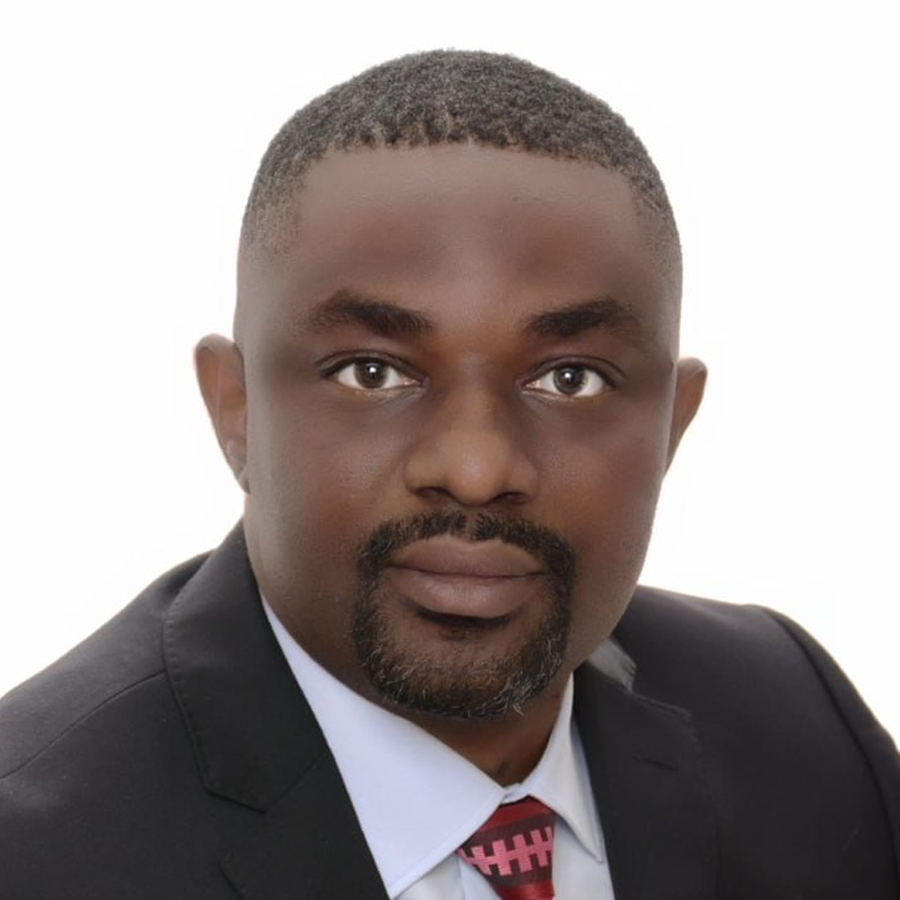
April 2023 Spotlight:
Gbenga Shaji, FIS
1. How did you get started in the anti-money laundering business?
I am passionate about financial crime fighting and that passion led me into the AML/Compliance world.
2. What are the challenges you face in your AML career?
Well I would rather see them as opportunity, and I think the major ones right now are the alternate financial platforms such as virtual currency, peer-to-peer payments, crowd funding etc. where not so much is known compared to the ideal banking world as we know it.
3. What are the skills that serve you best in your AML career?
Attention to details, good investigative skills and investigative report writing skills. I am also great at training.
4. What books/podcasts do you recommend?
Anti-Money Laundering in a Nutshell by Kevin Sullivan is a good read, as it provide insights into financial crime combatting.
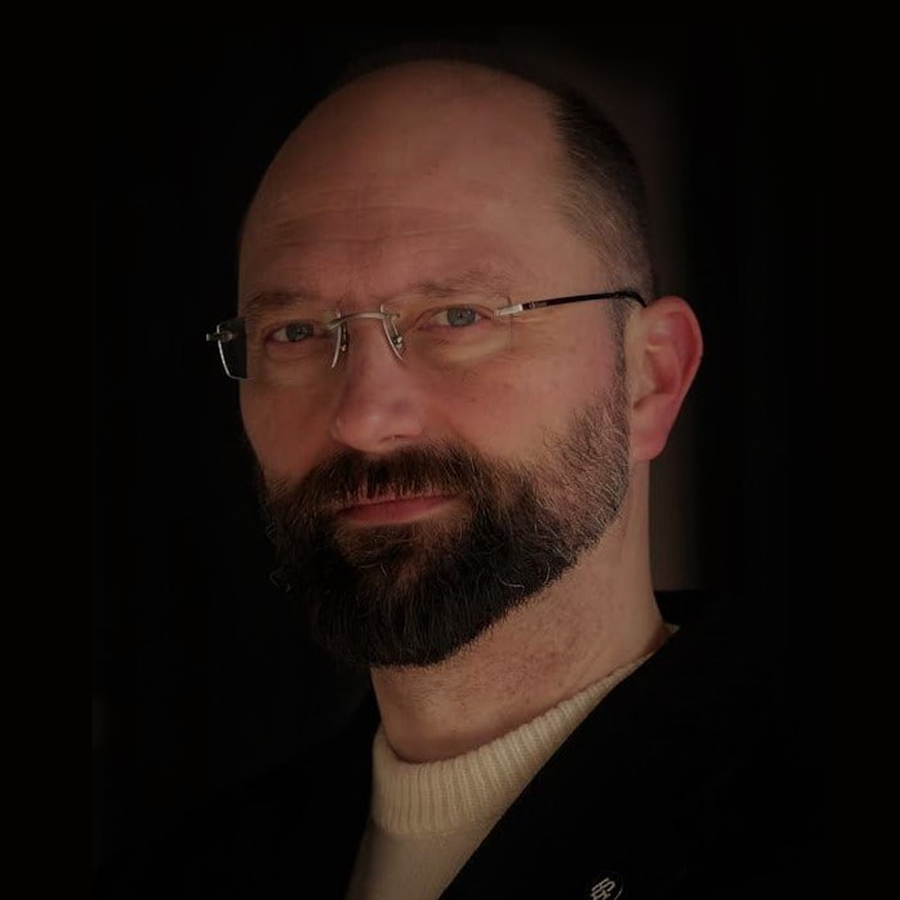
March 2023 Spotlight:
Miloš Tomin, FIS
1. How did you get started in the anti-money laundering business?
First, let me preface that I am currently not working in the AML space but would like to describe my career path and how FIS training helped me achieve my current position in a narrative that will integrate your questions. When I arrived in Canada in 2013, I expected to spend only a few years trying to continue my career at the level I had achieved. Before immigrating, I worked as an interpreter and analyst for the UN, as a consultant with Metropolitan Police London law firms and with NGOs in the United States analysing war crimes, terrorism and geopolitical risk. Faced with obstacles, I decided on a career shift toward AML. Unfortunately, as I made the first steps in this area, COVID-19 hit. Throughout the summer of 2020, I worked through the Financial Intelligence Specialist training modules and multiple webinars dealing with AML, compliance, risk, fraud and cryptocurrencies. The modular nature of the program allowed me to benchmark existing knowledge of AML and to learn about areas in which I had no experience, mostly concerning correspondent and private banking, capital markets and trade-based money laundering. The structured approach to learning about AML and the tests reinforced my confidence, but I had to absorb a lot of new information. Even in areas where I had experience, such as Report Writing, I would absorb 20-30% of new information that I would apply to the consulting project I worked on while studying the FIS courses.
2. What are the challenges you face in your AML career?
Shortly after, I pivoted back to Intelligence Analysis, the field I work in now at the Royal Bank of Canada. The biggest challenges I faced while trying to enter AML as a career were the ones that worked against me as an immigrant, lack of Canadian credentials and the inability of recruiters to understand the transferability of Intelligence Analysis skills to AML. Before returning to Canada and Intelligence Analysis, I worked full-time as an AML or Financial Intelligence Analyst with a major European online gaming and betting platform. I covered multiple territories from Europe, APAC and North America. The information and techniques used in ML, like structured deposits and attempts at KYC evasion, I learned through the program served me well at this time. The knowledge of exfiltration and obfuscation of proceeds of crime is something I still rely on in my current position at RBC.
3. What are the skills that serve you best in your AML career?
The expertise and self-confidence the FIS program gave me is why I recommend it first to anyone asking for advice on how to establish verifiable competence as well as certification demanded by almost all companies hiring in the AML field.
4. What books/podcasts do you recommend?
I don’t listen to podcasts that much but as I am an Avid LinkedIN user, I don’t miss anything posted by @?Stephen Sargeant. If I was to recommend one book that has the intersection of topics that interest me (money laundering, terrorist financing and intelligence analysis) it is Unholy Terror by John R. Schindler.
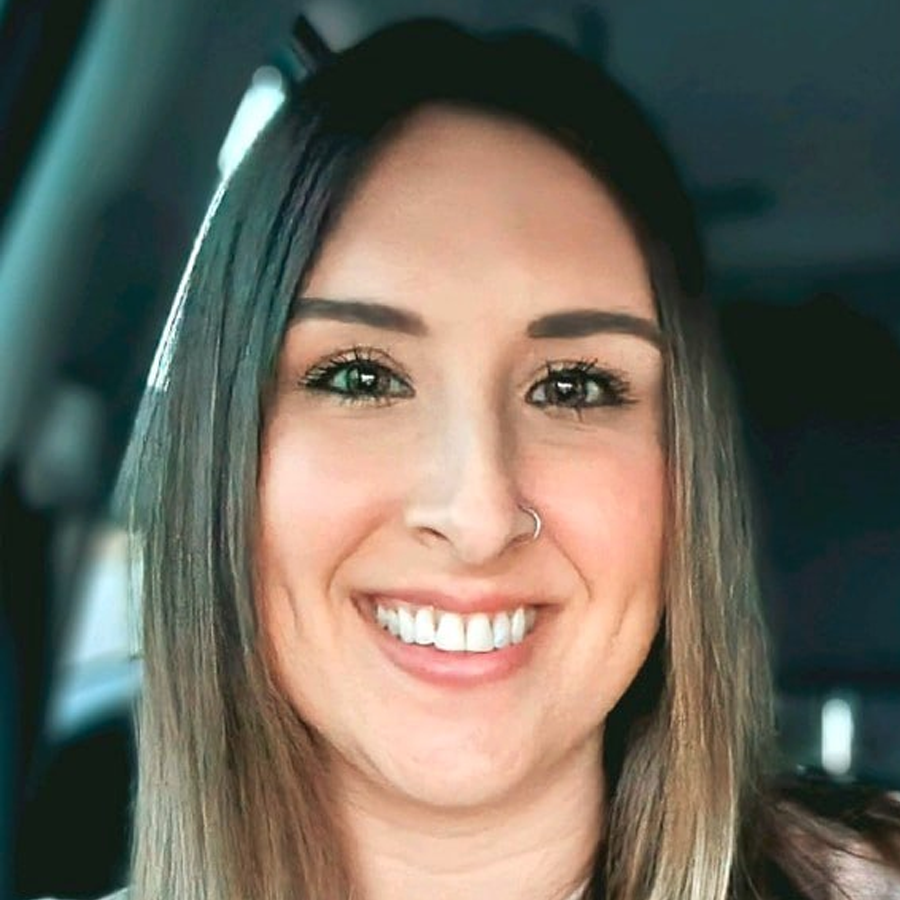
March 2023 Spotlight:
Jessica Ferris, FIS
1. How did you get started in the anti-money laundering business?
I started in the banking industry over 15 years ago in a branch setting. I always enjoyed our required, periodic learning sessions and courses on BSA/AML requirements and I knew this would be the industry I wanted to emerge into in my career. I eventually made my way into debit card fraud and that paved the way into AML.
2. What are the challenges you face in your AML career?
The challenges I face in my AML career include keeping up with emerging trends, regulations and staying one step ahead of the bad actors.
3. What are the skills that serve you best in your AML career?
The skills that have served me best include being naturally inquisitive and curious, analytical and practical.
4. What books/podcasts do you recommend?
I can’t recommend any books at this time; however, I recently started listening to the AML Talkshow Podcast, and find it very interesting! Hosts Martin Woods and Stephen Platt interview professionals working in the field of financial crime prevention.
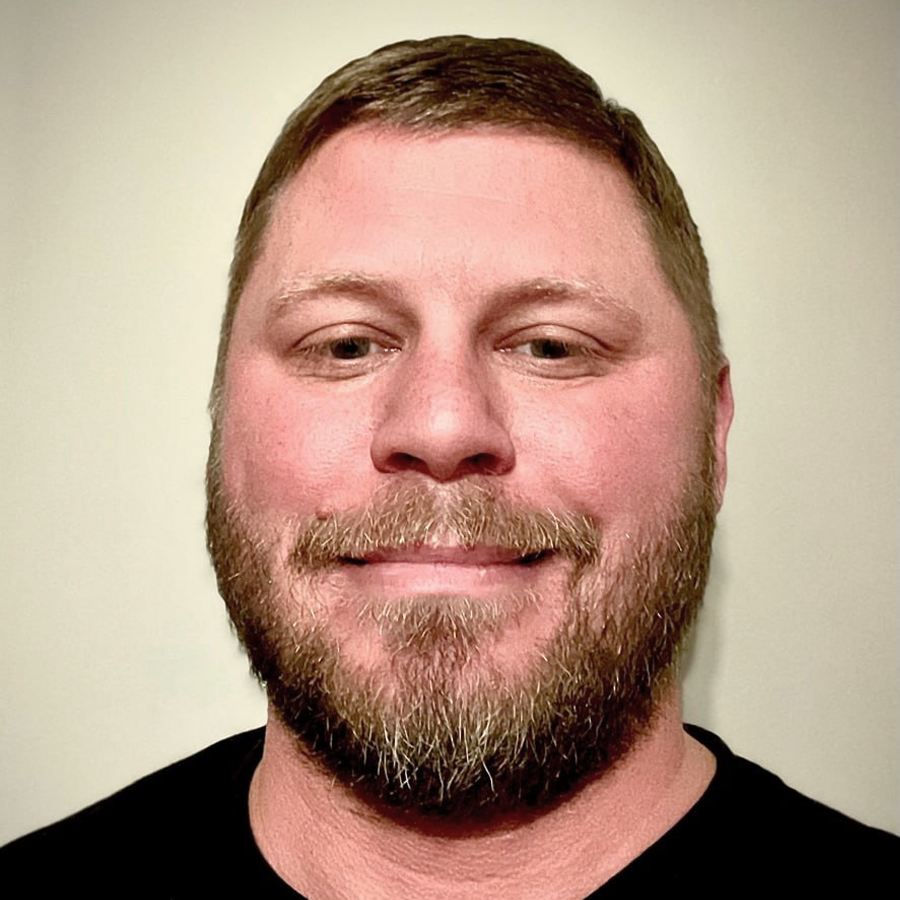
February 2023 Spotlight:
Rob Snider, FIS
1. How did you get started in the anti-money laundering business?
I have always had a knack for figuring things out and connecting the dots which propelled me to pursue a bachelor’s degree in criminal justice. Completing my degree, I began working in the law enforcement sector where I served many different investigative roles. During that time, I developed a passion for white-collar financial crimes. After nearly ten years at the local law enforcement level and many hours of financial crimes training, I accepted an investigative position with the State of North Carolina which primarily focused on financial crimes including but not limited to fraud and money laundering. That experience carried me more specifically into the financial sector in 2017. During the time I have been employed in the financial sector, I have expanded my knowledge in the field of anti-money laundering by serving various roles involving investigations, compliance, human trafficking and quality assurance. In addition to my experience, I have pursued industry-related certifications.
2. What are the challenges you face in your AML career?
The AML/BSA field is a very challenging one. It is important to accurately access risks within a financial institution as best as possible. This requires research and the collection of data. The more data that can be collected on a client, the better the risk assessment. One of the most challenging things is to finetune the data to make the appropriate risk assessment of the client. Failure to do so could result in numerous issues that could ultimately interfere with compliance. Also, I feel it is important to note that the AML sector is ever changing and methodologies must evolve to stay on top of all the latest and current trends of the bad actors. Those who are committing crimes within the financial industry never rest in seeking opportunities to circumvent regulations and protocols.
3. What are the skills that serve you best in your AML career?
Critical thinking is one of the most important things for someone working in the industry to be able to demonstrate as well as the ability to evolve. Just because a transaction takes place that you personally may feel is odd, it may not be odd for the individual or business. It is important to be able to separate yourself and critically think about the scenario through a different lens to make a proper assessment of the activity. The ability to adapt and evolve in an ever-changing AML environment is also a very important skill. The only thing constant within the field is change.
4. What books/podcasts do you recommend?
I have listened to multiple industry leaders speak on various AML topics as well as read multiple books independently. Two books which I have independently read on my own that standout:
Chasing Dirty Money: The Fight Against Money Laundering by Peter Reuter and Edwin M. Truman. This is an older book that I acquired and read when I first got into the industry, and it gives a great foundation for anyone looking to enter the area of AML. The book is eye opening regarding the scale of money laundering occurring on both a macro and microeconomic level.
Countering the Financing of Terrorism by Thomas J. Biersteker and Sue E. Eckert. This is a great book which provides an in-depth look at terrorist financing. It offers a great analysis of the subject from the 9/11 attacks to how the groups have adapted their efforts since that time. The best thing about the book is it does not just outline the efforts of the US, but it also touches on international efforts to combat the problem.





